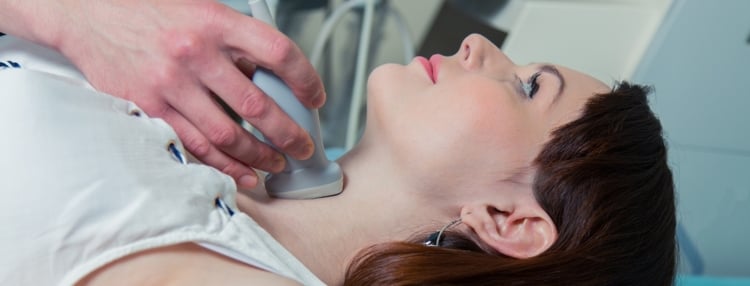-
Tracking cycle
-
Getting pregnant
-
Pregnancy
-
Help Center
-
Flo for Partners
-
Anonymous Mode
-
Flo app reviews
-
Flo Premium New
-
Secret Chats New
-
Symptom Checker New
-
Your cycle
-
Health 360°
-
Getting pregnant
-
Pregnancy
-
Being a mom
-
LGBTQ+
-
Quizzes
-
Ovulation calculator
-
hCG calculator
-
Pregnancy test calculator
-
Menstrual cycle calculator
-
Period calculator
-
Implantation calculator
-
Pregnancy weeks to months calculator
-
Pregnancy due date calculator
-
IVF and FET due date calculator
-
Due date calculator by ultrasound
-
Medical Affairs
-
Science & Research
-
Pass It On Project New
-
Privacy Portal
-
Press Center
-
Flo Accuracy
-
Careers
-
Contact Us
Thyroid and fertility: hypothyroidism symptoms in women and other conditions to bear in mind

Every piece of content at Flo Health adheres to the highest editorial standards for language, style, and medical accuracy. To learn what we do to deliver the best health and lifestyle insights to you, check out our content review principles.
How do thyroid hormones work?
The thyroid gland produces several hormones, two of which affect ovarian function: thyroxine (T4) and triiodothyronine (T3).
The ovaries have receptors to those hormones. T3 and T4 affect:
- egg growth and maturation
- progesterone and estrogen production by the corpus luteum
- egg fertilization
- embryo viability at its early stages of development
The hormones stimulate the absorption of intestinal cholesterol and the liver’s synthesis of cholesterol used to synthesize sex hormones.
T4 and T3 deficiency in the body may cause a shortage of material necessary to produce female sex hormones, which will disrupt the hormone synthesis and egg maturation processes.
How do malfunctions affect the female reproductive system?
Thyroid gland diseases cause sex gland disruption, which may lead to:
- premature or late sexual development
- ovarian malfunction
- ovarian cyst formation
- lower female sex hormone synthesis
- menstrual cycle disorders and ovulation absence
- increased prolactin production, a cause of infertility
To normalize the reproductive system, it is important to normalize the production of such thyroid hormones as thyroxine (T4), triiodothyronine (T3) and thyroid-stimulating hormone (TSH).
Tests and treatment regimen can be prescribed by the reproductive endocrinologist.

Hypothyroidism symptoms
In up to 34% of cases, hypothyroidism — a thyroid gland disorder when the hormones thyroxine (T4) and triiodothyronine (T3) are not produced in sufficient quantities — is a common cause of female infertility.
The deficiency leads to a disruption in the synthesis, metabolism, and transport of female sex hormones.
This may result in menstrual cycle changes, absence of ovulation, luteal phase deficiency, and an hypothyroidism infertility.
The condition is sometimes accompanied by fatigue, poor concentration and memory problems, muscle and joint pain, weight gain, brittle nails, and skin dryness.
If you are experiencing such low thyroid symptoms, don’t ignore them. It is recommended that you undergo thyroid hormone testing.
Take a quiz
Find out what you can do with our Health Assistant
Hyperthyroidism and fertility
One of the causes of conception difficulty (in 4.6% of infertile couples) is hyperthyroidism — an excess in the thyroid hormones thyroxine (T4) and triiodothyronine (T3).
When these hormones circulate in the blood for a long time, it leads to hyperplasia, endometrial polyps, polycystic ovary syndrome (PCOS), uterine bleeding, and absence of menstruation. PCOS can have the following symptoms:
- irritability
- heart palpitations
- weight loss
- hair loss
- fast nail growth
- hand tremors
- heat sensitivity
- skin thinness and smoothness.
If you are sexually active and can’t get pregnant, it would be reasonable to undergo a thyroid examination.


Hey, I'm Anique
I started using Flo app to track my period and ovulation because we wanted to have a baby.


The Flo app helped me learn about my body and spot ovulation signs during our conception journey.


I vividly
remember the day
that we switched
Flo into
Pregnancy Mode — it was
such a special
moment.
Real stories, real results
Learn how the Flo app became an amazing cheerleader for us on our conception journey.
History of updates
Current version (13 November 2021)
Published (30 August 2018)
In this article

Get your personal guide to fertility
-
Learn how to read your body's ovulation signals
-
Find daily conception tips from our experts
-
Chat with others who are trying to get pregnant




